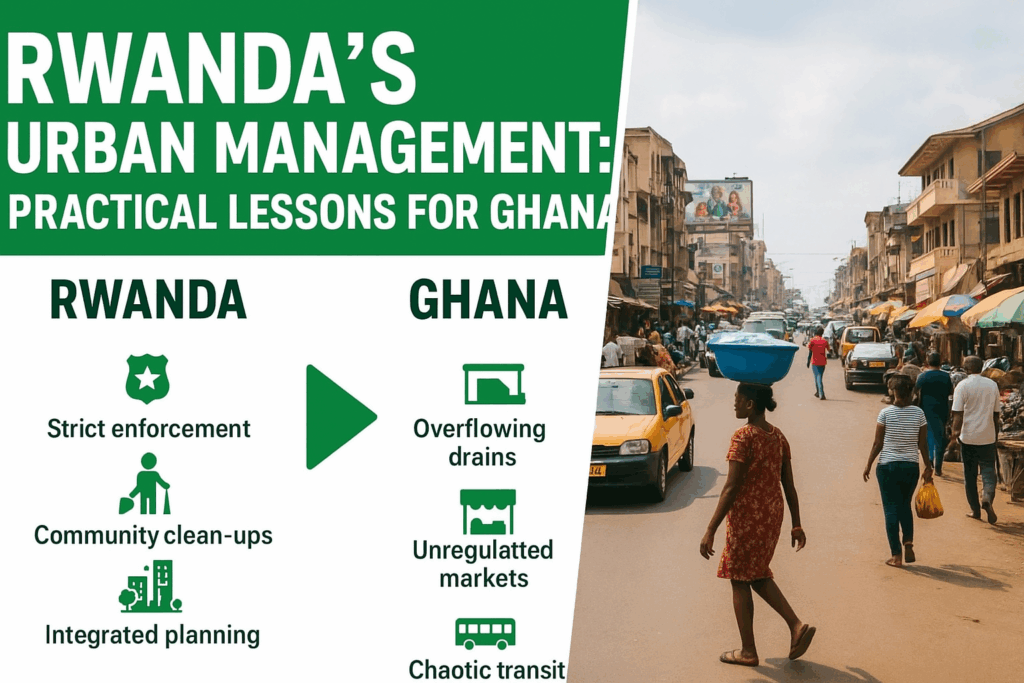Rwanda has earned global recognition for its clean streets, orderly public spaces, and disciplined urban planning. From Kigali’s spotless pavements to its coordinated waste management system, the East African nation has demonstrated that effective urban governance is not just about policies it’s about consistent enforcement, community participation, and a shared sense of responsibility.
Ghana, with its bustling cities and rapidly expanding urban centers, stands at a crossroads. Accra, Kumasi, and Takoradi are all experiencing population surges, informal settlements, and increasing pressure on infrastructure. While we have the talent and resources, our biggest challenge has been coordination between government agencies, municipal authorities, and citizens.
What Rwanda Gets Right
Rwanda’s urban success rests on three pillars:
-
Strict Enforcement of Sanitation Laws – Littering is met with swift penalties, while waste collection is systematic and reliable.
-
Community-Led Clean-Up Campaigns – Monthly Umuganda days bring citizens together to clean their neighborhoods.
-
Integrated Urban Planning – Clear zoning regulations, green space preservation, and coordinated transport systems ensure long-term city health.
Why Ghana Should Pay Attention
Ghana’s capital and other urban centers are at risk of becoming unmanageable without decisive action. Overflowing drains, inconsistent waste collection, and unregulated street trading are symptoms of a deeper governance problem. Rwanda’s approach shows that discipline, civic pride, and clear rules can transform city life.
Actionable Lessons for Ghana
-
Adopt a National Clean-Up Day: Beyond symbolic campaigns, make it a legal requirement with community accountability.
-
Strengthen Enforcement: Municipal by-laws should be enforced without political interference.
-
Invest in Public Spaces: Green areas, pedestrian-friendly streets, and functional transport hubs improve quality of life.
-
Educate Citizens: Public awareness campaigns must go beyond slogans linking clean environments to health, tourism, and economic growth.
Urban transformation is not a miracle it’s the result of sustained effort. Ghana can look to Rwanda not as a rival, but as a blueprint. If we adopt their discipline and community engagement, our cities could become models for West Africa and beyond.


